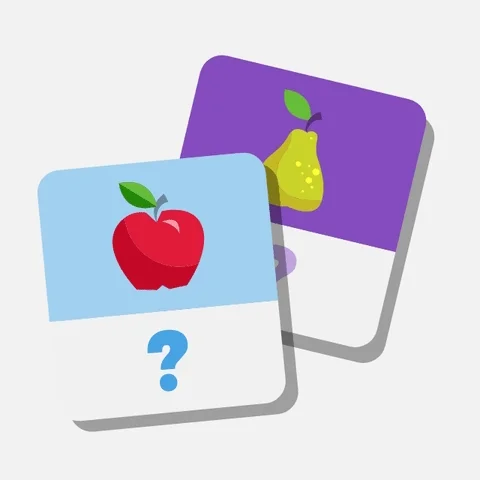Imagine talking easily with new friends from different countries, watching English movies without needing subtitles, and writing emails that make your teachers and future bosses happy. Sounds amazing, right?

The CEFR (Common European Framework of Reference for Languages) is a well-known way to measure how good you are at a language. The B1 level, or intermediate level, is important because it’s when you start using English more independently, not just the basics.
Reaching the B1 level is really important because it gives you new chances to talk to people, travel, and learn. It makes you more confident and better at using English in everyday situations, so it's great for both personal and professional growth.
Did you know?
Key Goals of the B1 Level
At the B1 level, you should aim to become more independent in using English by achieving several key goals. This includes:
Understanding simple conversations.
Dealing with different situations while traveling.
Writing simple text with connected ideas.
Describing your experiences clearly.

According to the CEFR, achieving these goals means you can:
Understand the main points of a conversation about familiar topics.
Handle most situations when travelling.
Write clearly and simply on familiar topics.
Describe experiences and events so that others can understand you.
Keep practicing, and you’ll see great progress with these goals!
Did you know?
Speaking Skills
At the B1 level, improving your speaking skills is important for talking in everyday situations.
Here are the main speaking skills to work on:
Talk about familiar topics. Chat about daily life, hobbies, and family.
Describe experiences and opinions. Share your experiences and give your opinion.
Practice regularly. Speak with others often to get better and learn new words.
Communicate independently. Try to talk more often and feel confident in real-life conversations.

Remember, the goal at the B1 level is to talk more and feel confident. By working on these speaking skills, you’ll be ready for real-life conversations and can express yourself clearly in English.
Listening Skills
At the B1 level, improving your listening skills will help you understand spoken English in many situations.
Here are the key listening skills you should focus on:
Focus on understanding the main ideas of familiar topics like work, school, and hobbies. For example, you should be able to follow a chat about weekend plans or understand a news report on something you know about.
Follow longer conversations if they're spoken clearly. For example, you might listen to friends talking about their holiday plans or a teacher explaining a new idea in class.

To improve your listening skills, make it a habit to:
Listen to English podcasts.
Watch fun English videos.
Chat with native speakers.
It’s also helpful to listen to different accents and talking speeds to get better at understanding.
Quiz
At B1 level, which is NOT a key goal for becoming more independent in using English?
Subscribe for more quick bites of learning delivered to your inbox.
Unsubscribe anytime. No spam. 🙂
Reading Skills
At the B1 level, you'll focus on improving your reading skills to understand written English in different situations.
Here are the key reading skills you should focus on:
Understanding texts about topics you like or work with. This means reading articles, travel guides, emails, adverts, and reviews.
Understanding descriptions in personal communication. This means reading and understanding emails or messages that talk about events, feelings, and wishes — for example, reading a message from a friend about their recent holiday or their future plans.

To improve your reading skills:
Practice regularly by reading a variety of texts in English.
Choose materials that interest you, such as books, blogs, or news articles.
Try to summarize what you’ve read to show you understand.
Improve your vocabulary by writing down new words and phrases.
Writing Skills
At the B1 level, improving your writing skills is really important for expressing yourself clearly in English. Here are the main writing skills to work on:
Start by writing simple texts on topics you know well or are interested in. This means writing about your daily life, hobbies, and experiences. For example, you could write about your favorite hobby or a blog post about a recent trip.
Write personal communications that describe your experiences and feelings. This means writing about your thoughts clearly and in an organized way. For example, you could write an email or message to a friend about your recent vacation or a new job.

Practice often by writing short essays, journal entries, summaries, or personal messages in English.
Focus on organizing your thoughts clearly and using correct vocabulary and grammar. You should also ask for feedback from teachers or friends to help you improve.
Tips for Success
Following effective learning strategies and habits. Here are some practical tips to help you achieve your goals:
Practice regularly. Make it a habit to practice speaking, listening, reading, and writing every day. Being consistent is important to improve your language skills.
Expand your vocabulary. Use cards to review new vocabulary.

Use authentic materials. Read books, watch movies, and listen to podcasts in English. This will help you understand the different ways people use English.
Talk to native speakers as much as possible. This will help you improve your speaking and listening skills in real-life situations. Plus, it’s a great way to make new friends!

Set simple goals. Divide your learning into smaller parts and set goals you can achieve. This will help you stay motivated and see your progress.
Quiz
Choose all the best ways to improve your listening skills:
Take Action

To achieve your goals at the B1 level:
Your feedback matters to us.
This Byte helped me better understand the topic.
